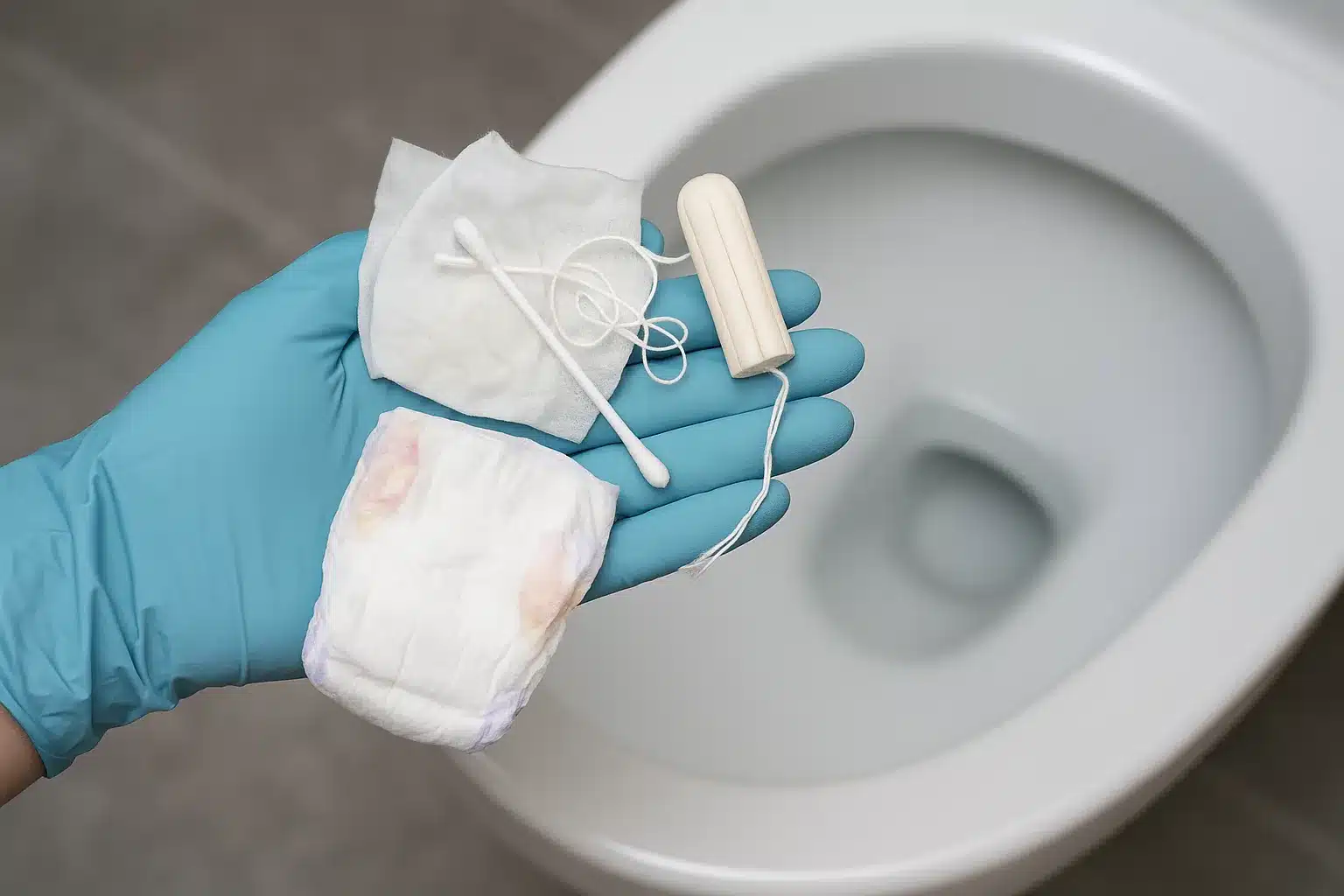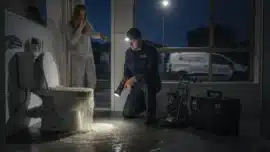
Unusual Items Found in Blocked Sewers: What Not to Flush
Blocked sewers are one of the most common reasons why we’re called out to homes and businesses across Sutherland Shire, and more often than not, the cause is something that should never have been flushed down the toilet. Despite labels like “flushable,” many household items don’t break down in the sewer system and end up creating major blockages. In this blog, SE Plumbing reveals some of the most unusual (and damaging) items we’ve found in blocked sewers, and explains exactly what not to flush if you want to avoid plumbing disasters.
Why It Matters
Toilets and sewer systems are only designed to handle human waste and toilet paper. Anything else increases the risk of blockage, pipe damage, and sewage backflow. Flushing the wrong items can:
- Cause partial or full sewer blockages
- Lead to toilet overflows and back-ups into your home
- Damage pipes, requiring excavation or relining
- Affect shared sewer lines, creating costly repairs for you and your neighbours
To understand how these blockages form, visit our Blog page on reasons why blocked drains are formed.
What You Should Never Flush
1. “Flushable” Wipes
Despite what the label says, most flushable wipes don’t break down in water like toilet paper. They clump together and get caught in pipe joints, quickly creating fatbergs in sewer lines.
- Includes baby wipes, makeup wipes, and cleaning cloths
- One of the leading causes of blocked toilets in Sydney homes
- These can cost thousands to remove from mains and private lines
If you’re already noticing toilet slowdowns or odours, call our Emergency Plumbing team now.
2. Sanitary Products
Pads, tampons, and panty liners are designed to absorb liquid, not disintegrate in sewers. These products expand in water, get lodged in pipes, and combine with grease to form blockages.
- These products often cause issues in homes with older pipework
- May lead to multiple fixture backups if flushed regularly
For blocked toilets caused by non-flushables, our plumbers can remove the clog without damaging your system.
3. Cotton Buds and Dental Floss
These small, seemingly harmless items easily slip down the toilet but wreak havoc underground.
- Floss wraps around clogs and makes them worse
- Cotton buds don’t break down and contribute to plastic build-up in sewer systems
- They also create hazards in council treatment plants
Our Leak Detection and Prevention service can identify buildup before it causes full blockage.
4. Food Scraps and Cooking Oil
While more commonly poured into sinks, we’ve seen food waste flushed down toilets during cleanups or renovations.
- Grease and oil harden in pipes, acting as glue for other waste
- Solid food doesn’t dissolve and causes clogs in bends and junctions
5. Nappies and Incontinence Pads
These absorbent products expand dramatically in water and can completely block a pipe in one flush.
- Can result in cracked pipes due to pressure build-up
- Often found stuck in U-bends or junctions
If a toilet won’t flush properly after one of these incidents, it may require jetting or excavation. Visit our Broken or Damaged Pipes page for the right solutions.
6. Hair and Dental Products
Razor caps, dental picks, wax strips, and even hair extensions have all been found during sewer line clear-outs.
- These items get tangled with other waste and form compact clogs
- Hair builds up in pipes and traps other debris, slowing flow
To prevent blockages, always dispose of hair and hygiene products in the bin.
7. Toys, Pens, and Household Tools
You’d be surprised how often we find kids’ toys, pens, and even screwdrivers flushed down toilets.
- Often occurs in homes with small children
- Items become lodged deep in the pipe and require camera inspection to locate
Our CCTV-equipped Emergency Plumbing team can remove these items without full pipe replacement.
What You Can Flush
- Human waste
- Toilet paper (in reasonable amounts)
- That’s it. Everything else belongs in the bin—not your toilet.
What Happens If You Flush the Wrong Thing?
- Immediate effects: slow flushing, gurgling, or rising water
- Mid-term: persistent toilet clogs and backups
- Long-term: cracked pipes, sewer backflow, or complete system failure
Don’t wait until your system fails. If you’ve been flushing non-degradables, it’s time for a preventive drain inspection.
How SE Plumbing Can Help
We’ve cleared thousands of blocked sewer drains across Sutherland Shire, and we’re equipped to do it fast and with minimal mess.
- CCTV cameras to find unusual obstructions
- High-pressure jetting to break up clogs and fatbergs
- Safe removal of solid items without excavation
- Honest advice on what to flush and what to avoid
Call 0414 651 351 or book a service online if you suspect something’s gone down the drain that shouldn’t have.
Protect Your Drains with SE Plumbing — Sutherland Shire’s Blockage Experts
Flushing the wrong items is one of the top causes of sewer blockages in Sutherland Shire. If it’s not human waste or toilet paper, it doesn’t belong in your toilet. By following these simple rules, you’ll protect your plumbing, avoid costly repairs, and keep Sydney’s sewer system running smoothly. For any drain concerns, trust SE Plumbing to get it sorted properly, safely, and promptly.



